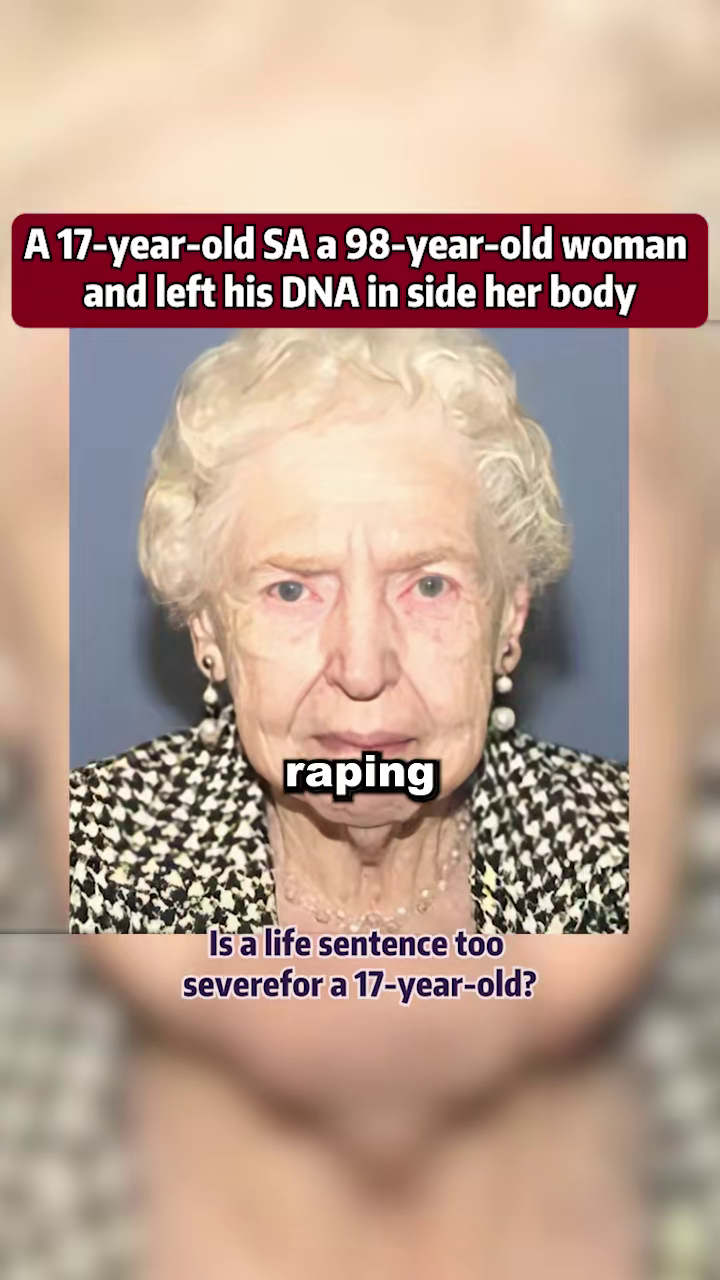The tragic case of Gavin Ramsey has gripped Ohio and sparked nationwide debate about juvenile crime, punishment, and mental health. At just 17 years old, Ramsey was charged, tried as an adult, and sentenced to life imprisonment without parole for the sexual assault and murder of his 98-year-old neighbor, Margaret Douglas. This story raises difficult questions about the justice system, the influence of childhood trauma and medication, and the boundaries of moral and legal responsibility.
The Crime
On a seemingly ordinary day in Wadsworth, Ohio, a horrifying act of violence shattered the community:
-
Victim: Margaret Douglas, a 98-year-old woman, known for her vibrant personality and zest for life.
-
Perpetrator: Gavin Ramsey, a 17-year-old neighbor.
-
Details: Ramsey broke into Douglas’s home, assaulted her sexually, and murdered her. Video and forensic evidence showed that he recorded her while she slept. His DNA was later matched to the crime scene.
The brutality of the crime shocked neighbors and law enforcement. Douglas, who had dreams of celebrating her 100th birthday, was denied the chance to live out her final years safely.
Legal Proceedings
Due to the severity of the crime, Ramsey was tried as an adult. Key points from the courtroom:
-
The judge sentenced him to life without parole, emphasizing the premeditated and heinous nature of the crime.
-
The defense presented mitigating factors, including Ramsey’s childhood abuse, behavioral issues, and use of the antidepressant Zoloft during his adolescence.
-
His mother testified that she partially accepted responsibility, claiming that the medication may have influenced his actions.
Despite these factors, the court ruled that the gravity of the crime outweighed his youth, reflecting the legal principle that certain juvenile acts warrant adult consequences.
Community and Family Reactions
The community and the families involved were deeply affected:
-
Victim’s family: Tearfully recounted Margaret Douglas’s vivacious life and her love for the community. They stressed that Ramsey’s actions destroyed decades of life experience and family memories.
-
Ramsey’s family: Emphasized his troubled upbringing, abuse, and the effects of antidepressants on his adolescent brain. They argued that a life sentence for a teenager might be too harsh and failed to consider rehabilitation.
-
Public debate: The case has fueled discussions over whether juveniles, even at 17, should face life without parole, especially when mental health and trauma may have influenced their behavior.
Mental Health and Medication Factors
One of the most controversial aspects of the case involves Ramsey’s mental health history:
-
The defense cited a prescription of Zoloft, suggesting it may have contributed to impulsive or violent behavior.
-
Mental health experts note that antidepressants can, in rare cases, influence adolescent mood and aggression, though establishing causation is complex.
-
The discussion highlights the challenges courts face in balancing accountability with understanding the neurological and psychological development of teenagers.
Ethical and Legal Debate
The Gavin Ramsey case raises critical ethical and legal questions:
-
Should juveniles face adult sentences for severe crimes?
-
Proponents argue that the nature of the crime justifies adult-level consequences.
-
Critics emphasize rehabilitation and brain development, noting that teens’ decision-making abilities differ from adults.
-
-
Influence of trauma and medication:
-
Does exposure to childhood abuse and psychiatric treatment mitigate culpability?
-
How should courts weigh these factors in sentencing?
-
-
Public safety vs. second chances:
-
While life imprisonment ensures safety, it removes any possibility of rehabilitation.
-
Communities and families are divided over whether justice was served or whether the system failed to account for Ramsey’s age and background.
-
These debates reflect broader societal questions about juvenile justice, the ethics of life sentences, and mental health considerations in criminal law.
The Broader Implications
This case is not isolated; it fits into a larger trend of high-profile juvenile crimes that test the limits of the justice system:
-
Similar cases have sparked national debate over sentencing juveniles as adults, particularly in violent and sexual crimes.
-
Research in developmental psychology indicates that teen brains are still maturing, particularly in areas controlling impulse and judgment.
-
Advocates for juvenile justice reform argue for alternative sentencing, rehabilitation programs, and mental health interventions rather than permanent incarceration.
Conclusion
The story of Gavin Ramsey and Margaret Douglas presents a morally complex and legally significant case:
-
On one hand, Ramsey’s actions were heinous and destructive, causing irrevocable harm to an elderly victim and her family.
-
On the other hand, he was a 17-year-old adolescent, allegedly influenced by trauma and medication, raising questions about fairness and the potential for reform.
Ultimately, the case challenges society to consider:
-
How do we balance justice for victims with compassion for young offenders?
-
How should mental health factors influence sentencing?
-
Where should the line be drawn between punishment and rehabilitation?
The Gavin Ramsey case will remain a reference point in debates over juvenile sentencing, mental health considerations, and the limits of the law when a teenager commits an adult-level crime.

